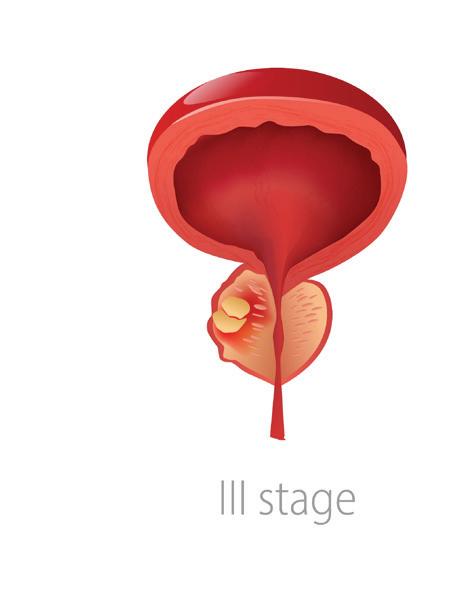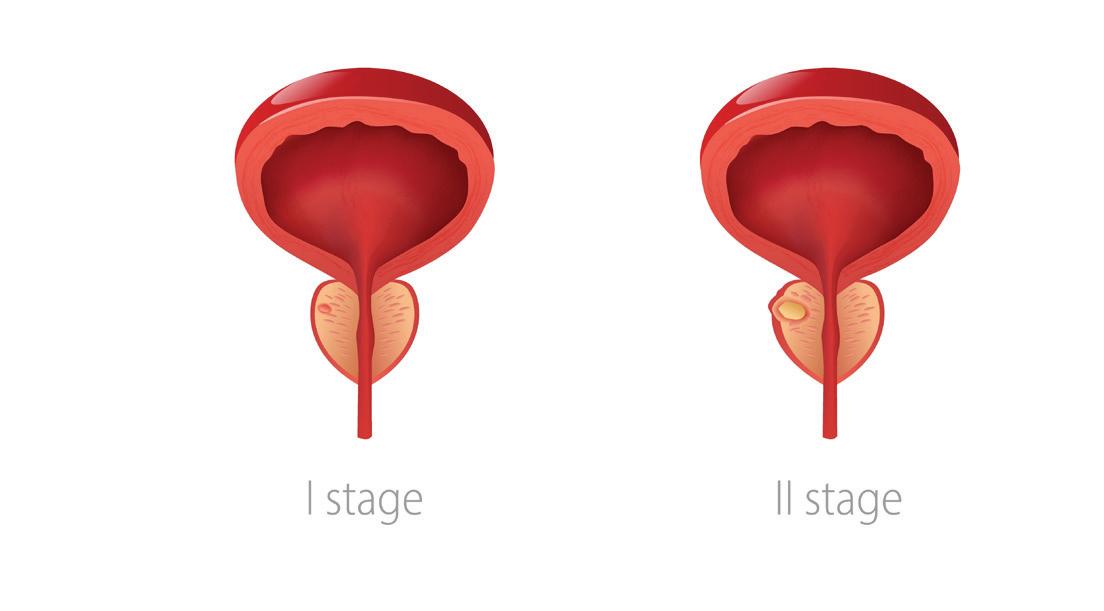
1 minute read
SYMPTOMS OF Prostate Prostate Cancer? Cancer?
By Alicia Ingram
If you exclude skin cancer, more men develop prostate cancer than any other type of malignancy. About 180,000 men are diagnosed with a prostate tumor each year in the U.S., and while many die from other causes, there are still around 26,000 prostate cancer deaths annually. Even though the majority of prostate cancers occur in those over the age of 65, if you are over 40, it pays to be familiar with the common signs. Early diagnosis allows you to receive the monitoring and treatment you need that can increase your chances of survival.
Advertisement
Early Signs of Prostate Cancer


Early-stage prostate cancer is usually asymptomatic, often because the tumor is not large enough to press on your urethra. In the absence of symptoms, a routine blood test may reveal raised levels of prostate specific antigen (PSA), thereby indicating cancer. With an early diagnosis, your specialist may decide to hold off any cancer treatment, choosing instead to monitor your test results.
Advanced Prostate Cancer Symptoms
Symptoms of cancer vary among men, depending on the size and stage of the tumor, so you may experience one or several symptoms. A common sign of prostate cancer is difficulty urinating. You may find that you need to go to the bathroom more often, particularly during the night, or your urine stream is particularly slow or weak. There also may be blood in your urine or semen, and you may even develop erectile dysfunction. While you may not wish to discuss impotence with your doctor, erectile problems can have a serious cause. Always seek medical advice rather than self-medicate. Additionally, a large prostate tumor may press on your spinal cord, leading to your legs and feet feeling weak or numb. If a tumor spreads to your bones, prostate cancer signs may also include hip, back, or chest pain.
While you should always consult your doctor if you develop possible signs of prostate cancer, in many cases the symptoms are of a nonmalignant origin. For instance, benign prostate enlargement, known as benign prostatic hyperplasia (BPH), frequently occurs among men over 50, causing difficulty urinating and emptying the bladder. Your doctor will assess your symptoms and arrange suitable tests as required, offering you peace of mind and letting you receive timely treatment if necessary.









